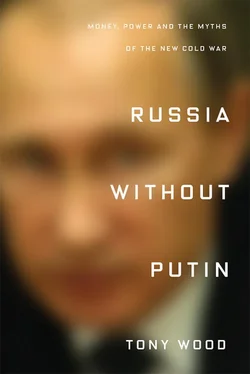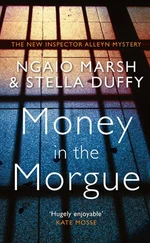The continued failure to gain better access to the EU’s markets was a particular sore point for Russia. From the 1990s until the global economic crisis of 2008, EU states had accounted for around two-thirds of the country’s imports and exports, and even after that, as Russia laboured under a downturn and then the pressure of the 2014 Western sanctions, they still accounted for about half. {35} 35 Based on data from the Observatory of Economic Complexity, atlas.media.mit.edu .
But a string of Russia–EU summits – in Samara in 2007, Khanti-Mansiisk in 2008, Khabarovsk in 2009 – did not produce any substantive agreements.
Nonetheless, the ideal of Russian integration into some broader, ‘Greater European’ arrangement persisted. In June 2008, for example, the newly installed President Dmitri Medvedev – much more of a liberal Westernizer than Putin – put forward the concept of a ‘Euro-Atlantic space’ stretching ‘from Vancouver to Vladivostok’. {36} 36 Tsygankov, Russia’s Foreign Policy , p. 185.
The idea applied to security questions as well as economic ones: Medvedev also proposed a new ‘all-European’ security architecture, apparently whipping out his iPad to discuss it at the 2010 Moscow session of the Munich Security Conference. {37} 37 Benjamin Bidder, ‘NATO–Russia Relations on the Mend’, Spiegel Online , 3 November 2010.
Posited as an alternative to the Atlanticist structures of NATO, the concept would have required European states to voluntarily peel away from the US. There was little interest in the scheme outside Moscow, but just to be sure, NATO chief Anders Fogh Rasmussen pointed out in late 2009 that ‘we do have a framework already’, while Secretary of State Hillary Clinton reinforced the message early in 2010 by explaining that the US’s and Russia’s ‘common goals are best pursued in the context of existing institutions, such as the OSCE and the NATO–Russia Council, rather than by negotiating new treaties, as Russia has suggested – a very long and cumbersome process’. {38} 38 ‘NATO chief opposes Russia’s security pact proposal’, Reuters , 17 December 2009; Hillary Clinton, ‘Remarks on the Future of European Security’, Paris, 29 January 2010.
NATO would not be dislodged as the sole security bloc in the Euro-Atlantic area, and Russia would remain outside it.
Between the spring and summer of 2008, Russian–Western relations moved swiftly from rhetorical stand-offs to proxy war. In February, Kosovo’s declaration of independence was swiftly recognized by the US and other leading NATO states, setting a precedent Russia deemed alarming. In April, a NATO summit in Bucharest raised the prospect of membership for Georgia and Ukraine – only to defer it until some unspecified future date, in the face of Putin’s strenuous objections. Meanwhile tensions were escalating in the breakaway Georgian regions of Abkhazia and South Ossetia, de facto Russian protectorates since brief separatist wars in the early 1990s. In early August 2008, Georgian President Mikheil Saakashvili – seemingly with encouragement from the US – suddenly moved to recapture South Ossetia, providing Russia with a ready pretext for armed intervention.
Militarily, the conflict was a mismatch, and was over after five days of fighting. Politically, it was far more consequential. It was partly a kind of retaliation on the plane of international law for previous Western actions: Medvedev invoked the West’s own doctrines of ‘humanitarian intervention’ and the ‘responsibility to protect’ (‘R2P’), as deployed in Kosovo in 1999 and agreed at the UN’s 2005 World Summit, respectively. In the immediate aftermath of the war, moreover, the Kremlin recognized South Ossetia and Abkhazia as independent states, citing the barely six-month-old precedent of Kosovo. The staggering hypocrisy of this gesture, from a government that had fought two wars to prevent Chechen independence, hardly needs emphasizing. But the Georgian operation was more immediately intended to call the West’s bluff on further NATO enlargement, effectively asking if it was willing to start a full-scale global war for the sake of tiny Georgia. The answer, despite much bluster from US Republicans such as John McCain, was no. Behind this confrontation, meanwhile, the issue of Ukraine – strategically far more significant to both Russia and the West – lurked in the background, as an obvious future flashpoint.
In March 2009, Secretary of State Clinton presented her Russian counterpart, Sergei Lavrov, with a yellow plastic box featuring a red button marked ‘reset’ in English – a tacky token of the Obama administration’s desire to improve US–Russian relations in the wake of the Russo-Georgian War. But the State Department had made a basic translation error when labelling the button in Russian: instead of perezagruzka it read peregruzka – not ‘reset’, but ‘overload’. The gaffe pointed to an embarrassing lack of either competence or care in Washington; it was also an unbeatably Freudian summary of the whole trajectory of post-Cold War relations between the two countries.
The arrival of the Obama administration was meant to herald a new phase of co-operation, but brought the exact opposite: a period of increasing antagonism and mutual suspicion. In the West, the reasons for this are often sought in Putin’s authoritarian persona, or in a broader Russian nostalgia for superpower status. But while both these factors were certainly present, neither was as important as the underlying dynamic of Western–Russian relations, which remained unaltered by the empty diplomatic gestures of the ‘reset’. Moscow’s aspirations for alliance or integration were repeatedly ignored or rebuffed by the West, which had its own plans and priorities. Foremost among these was the drive by NATO and the EU to bring the former Soviet and Warsaw Pact states of Eastern Europe into the Western orbit, reformatting their political and economic systems along liberal capitalist lines. For much of the 1990s and 2000s, Russia was powerless to prevent the advance of this project. But enforced passivity should not have been mistaken for willing acceptance. What has happened over the past decade, far from being an unforeseen escalation of tensions, is a collision – delayed or masked for a time – of incompatible interests.
Russia’s actions on the world stage over the past few years have been marked by a rising rhetorical aggression, and by an increased adventurism in practice: the annexation of Crimea and support for rebels in the Donbass; intervention in Syria; courting of hard-right candidates and movements campaigning against the established order in major Western states, from Trump in the US to Le Pen in France and the Alternativ für Deutschland party in Germany. These moves have often been interpreted as being all of a piece, as parts of some deliberate Kremlin design for a conservative world order that would overturn the dominance of liberal democratic norms. Russia’s rulers have indeed come to see themselves as fundamentally opposed to the Western liberal-democratic order, and have increasingly embraced a set of geopolitical ideas that emphasize the country’s peculiar ‘Eurasian’ destiny. But we should avoid the temptation to explain these developments as being driven by a coherent, pre-established agenda. Russia’s decisions have been shaped most decisively by the geopolitical environment in which the country has to operate, and this environment is dominated by other powers – the US above all.
Most of Russia’s conduct on the world stage, in fact, has to be seen as a series of responses to this overriding constraint. Since the Ukraine crisis, those responses have been increasingly combative; but they have also been largely improvised, focused on short-term tactical thinking rather than any longer-term project. The apparent aggression stems not from a growing confidence or sense of purpose, but from a pervasive and deepening anxiety about Russian weakness. It is this that fuelled the Putin administration’s attempts to reassert Russia’s global relevance – and, first of all, to reverse the setbacks it suffered in Ukraine.
Читать дальше












